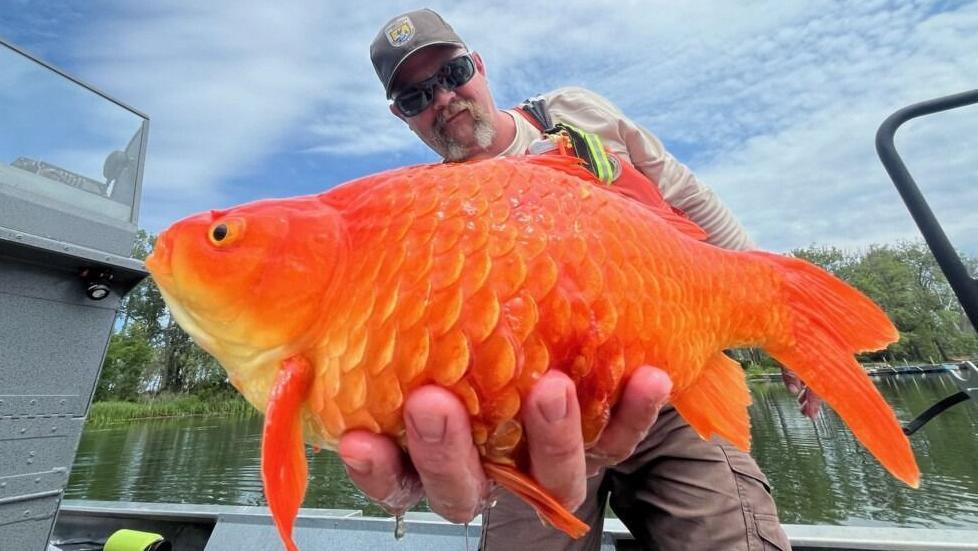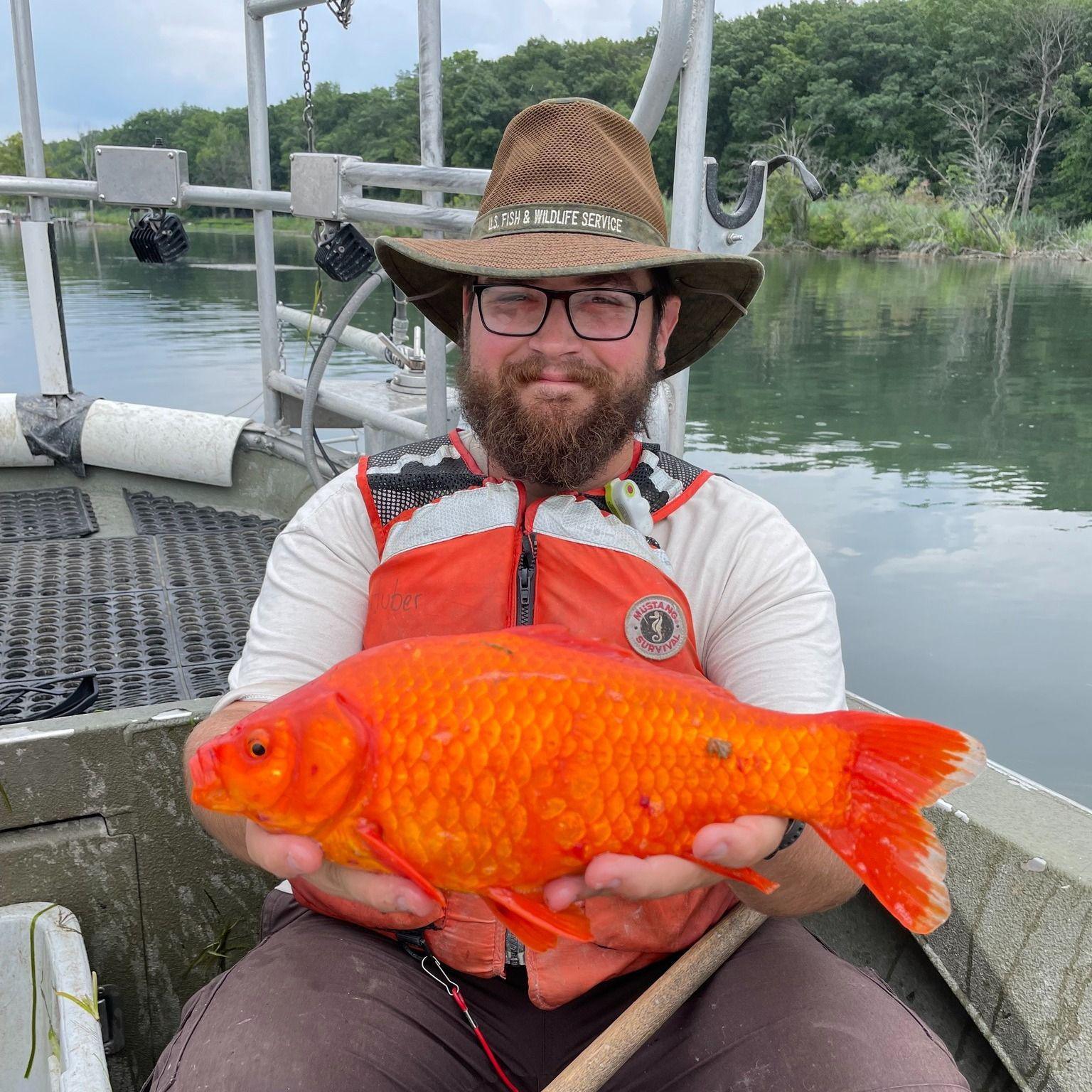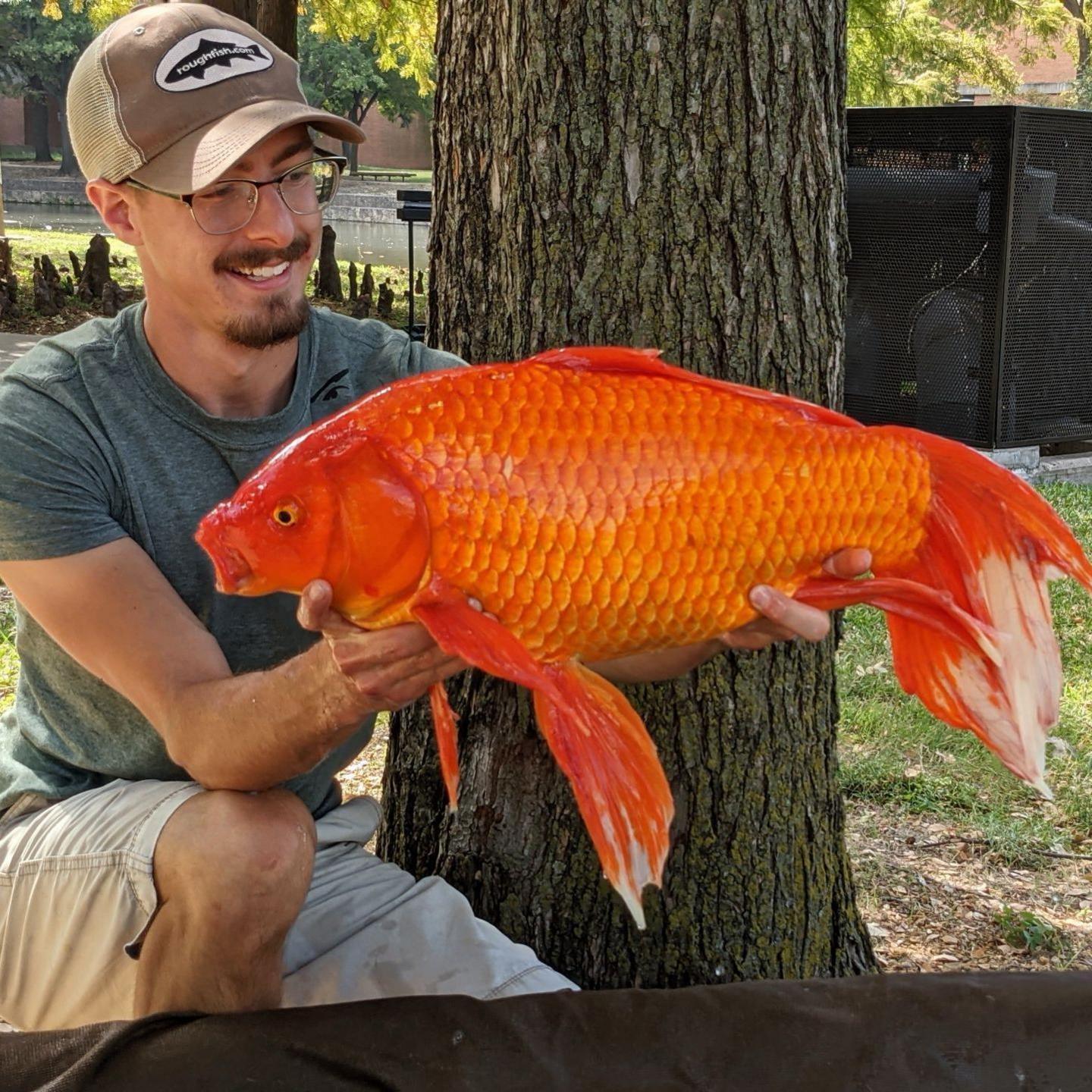Warning over gigantic goldfish found in US lake

It's been called the 'Megalodon' goldfish
- Published
You might have a pet goldfish at home, but I bet you've never seen one quite like this before.
Although the idea of a giant goldfish might sound cool, it's not actually good news.
The US Fish and Wildlife Service (USFWS) who found it said that by someone releasing their pet into the wild they had "created an invasive problem that can last decades".
An invasive species is a non-native species that threatens the environment it's introduced to.
The photo was taken in Lake Erie in Pennsylvania in July 2024, but has now been shared as part of USFWS's Invasive Species Week.

The pictures were taken during electrofishing surveys which provide a safe way to study fish populations in rivers and lakes without harming them
In a social media post, the USFWS wrote: "Your pet store goldfish after two years in the wild: 'Call me Megalodon.'
This goldfish isn't supposed to be here. But someone released it, thinking they were being kind. Instead, they created an invasive problem that can last decades."
It added: "Goldfish grow massive in the wild, where they can turn lakes and waterways into murky messes, steal food from native fish, and wreck water quality.
If you can't keep your fish, rehome it. Just don't let it loose."
On it website, the government agency explained that although goldfish in pet shop tanks may look harmless, "in the wild, they don't stay small."
"Without a tank limiting their size, goldfish that once fit in the palm of your hand can balloon into giant, football-sized invaders that compete with native species for food and habitat," it wrote.

This huge one weighed more than 4kg when it was found
A well as upsetting delicate ecosystems, which harms native fish and plant life, goldfish in the wild can also carry harmful parasites and diseases that infect native fish.
Another problem is that the goldfish can multiply quickly, and without any natural predators in the wild to keep their numbers down, their populations can "explode".
The USFWS is now reminding goldfish owners who can no longer keep their pets to rehome them or return them to a pet shop, rather than releasing them into local lakes or waterways.
"Releasing a pet to the wild is never the right thing. Most pets released to the wild do not survive, and many suffer before they die," the agency wrote.
"If it does survive, your pet could become an invasive species that harms native wildlife."
